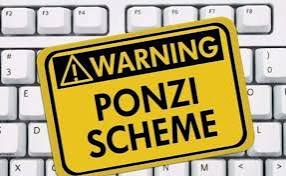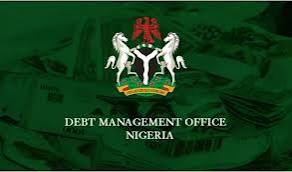Nigeria has become a prime target for Ponzi schemes, resulting in millions of unsuspecting investors losing their life savings in a cycle of financial deceit and broken promises.
From digital platforms to agriculture-based investments, these fraudulent schemes continue to exploit the desire for quick returns, particularly in a country facing significant economic challenges.
Here, we examine ten major Ponzi schemes that have rocked the nation, leaving a trail of financial ruin in their wake.
In 2016, the notorious Mavrodi Mundial Moneybox (MMM), a Russian company, entered the financial landscape promising a 30 percent monthly return. Designed after a global Ponzi model, it attracted over three million Nigerians who “provided help” in hopes of receiving “help” in return.
The scheme collapsed in December 2016, freezing accounts and resulting in losses estimated at over ₦18 billion.
Shortly after the failure of MMM, Ultimate Cycler emerged in Nigeria, enticing thousands with a promise of a 400 percent return on investment for a ₦12,500 entry fee in a chain-style operation.
However, the website abruptly shut down, leaving users without any means of recourse.
Soon after, in 2017, Twinkas appeared, offering a 200 percent return. This scheme ultimately fell apart as new sign-ups dwindled, leaving many participants unpaid and frustrated.
That same year, D9 Club gained traction by claiming to generate profits from global sports betting.
With operations spanning multiple countries, its Nigerian victims were left to tally their losses after the scheme collapsed, with estimates suggesting that Nigerians lost over ₦10 billion to this fraudulent venture.
In 2020, MBA Forex Trading and Capital Investment Limited gained attention for its promise of professional forex trading returns.
Thousands of Nigerian investors placed their trust in the platform, leading to investments exceeding N171 billion. However, the platform ultimately shut down without meeting its payout obligations.
Maxwell Odum, the CEO, was declared wanted by the Economic and Financial Crimes Commission (EFCC), but no further updates on the case were reported.
In 2021, Famzhi Interbiz Limited emerged, presenting itself as a cooperative and promising monthly returns of up to 30 percent.
The scheme attracted significant investments until the Securities and Exchange Commission (SEC) ruled its activities illegal, resulting in estimated losses of around N30 billion for investors.
In 2022, the ‘Red King’ Chinmark Group, which claimed to invest in hospitality, transportation, and other sectors, collapsed. Heavily promoted by social media influencers, the company failed to make payments, leading to substantial investor losses.
CEO Mark Chinendu faced significant public backlash and scrutiny due to unfulfilled promises.
Ovaioza Farm Produce Storage Business also failed in 2022. The company marketed itself as an agricultural investment platform, claiming to offer returns of up to 70 percent.
Many were drawn in by the apparent legitimacy of the agribusiness, only to discover it was yet another Ponzi scheme.
Estimated losses exceeded N3 billion, leading to the arrest of its founder by the Federal Competition and Consumer Protection Commission (FCCPC).
Brisk Capital emerged in 2021 as a tech-driven investment firm, attracting thousands of Nigerians, particularly young people, with promises of 30 percent monthly returns.
Its founder, Dominic Ngene, leveraged social media to establish credibility, but the platform collapsed within months, leaving investors in the lurch and resulting in estimated losses of over N2 billion.
Most recently, CBEX (Crypto Bridge Exchange) collapsed in April 2025.
CBEX marketed itself as a state-of-the-art cryptocurrency trading platform that leveraged artificial intelligence to deliver impressive returns. It attracted investors with the enticing promise of doubling their capital in a short timeframe.
However, users soon encountered difficulties withdrawing their funds, and the platform’s web domains mysteriously disappeared. Many victims are now reporting losses ranging from N500,000 to over N2 million each.
The persistent rise and fall of Ponzi schemes in Nigeria can be linked to several factors, including economic challenges, low financial literacy, and the tempting promise of high returns.
Over the years, the Securities and Exchange Commission (SEC) of Nigeria has taken a firm stance against Ponzi schemes and other fraudulent investment activities that have deceived millions of Nigerians.
The Commission has consistently warned the public to steer clear of investments that offer unrealistic returns, particularly those that promise fixed high profits in a short period.
The SEC states that these platforms are not registered within its regulatory framework and frequently function outside the legal capital market system.
In light of the increase in illegal financial activities, the SEC has issued multiple public advisories identifying blacklisted and unauthorized entities.












